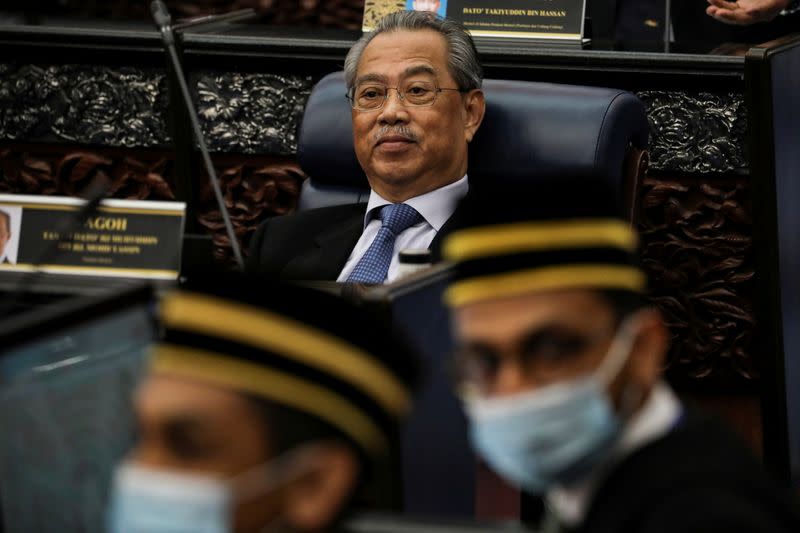Malaysia risks investment trouble as political drama drags on
(This story was corrected to remove the extra word "said" in paragraph 6. Earlier version corrected attribution in paragraph 5 and designation in paragraph 9)
By Liz Lee
KUALA LUMPUR (Reuters) - With its leadership tossed into uncertainty again, Malaysia risks delays and loss of new investments, analysts and business groups say, as anxiety bubbles among foreign investors worried about policy disruption and reforms stalling.
A week after opposition leader Anwar Ibrahim laid claim to the premiership citing enough parliamentary support to form a new government, the political situation is fluid and the power to decide what happens next rests with a king who is currently hospitalised.
Fitch Solutions said the upheaval since March was risky for Malaysia's long-term growth at a time when its neighbours compete for investments from firms diversifying manufacturing away from China.
"Malaysia could find it difficult to pitch its attractiveness to investors given the existence of lower-cost centres such as Vietnam and Indonesia on the one hand, and more stable politics in countries such as Singapore," its Senior Asia Country Risk Analyst Darren Tay told Reuters.
The power struggles that have ensued since the end of decades of unbroken rule by one party in 2018 could sap confidence among multinationals beset by coronavirus-related problems, analysts and business groups said.
"Political instability ranks high on corporations' considerations because it would have a ripple effect on policies," said the American Malaysian Chamber of Commerce CEO Siobhan Das.
Muhyiddin Yassin unexpectedly emerged as prime minister in March after forging an alliance with opposition parties to gain a parliamentary majority.
He was accused of stealing power by shifting alliances instead of earning an electoral mandate and has rejected Anwar's claim of legislative backing.
Japanese firms long present in Malaysia are watching closely, and decision makers back home are worried it could complicate future plans, said Daiji Kojima, president of the Japanese Chamber of Trade and Industry.
Bank Islam economist Adam Mohamed Rahim said equities investors were anxious about the possibility of a new election, while Jeffrey Halley, senior market analyst at OANDA, said a change in government could pose problems for new investments.
"Malaysia may struggle to attract foreign inflows when the country's governance is in such a state of constant flux," he said.
A smooth power transition, however, could see Malaysia's appeal restored in about six months, Halley said.
(Reporting by Liz Lee; Editing by Martin Petty)

 Yahoo Finance
Yahoo Finance 

